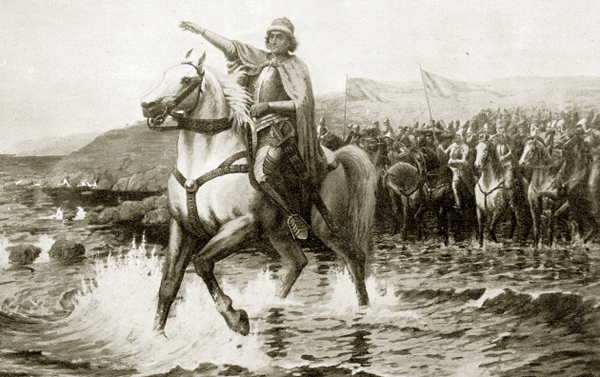Du pastarieji metai buvo labai svarbūs Lietuvos atminties politikai. 2009-aisiais Lietuva šventė savo tūkstantmetį, o šiemet ji švenčia 20-ąjį savo nepriklausomybės atgavimo jubiliejų. Abiem atvejais daug diskusijų sukėlė ir per šventinius įvykius buvo dažnai minimas Lietuvos tautinis mitas: idėja, kad tauta amžinai gyvuoja lietuvių dvasioje, kuri pasireiškia per tos tautos žmonių kultūrą, tradicijas ir kalbą.
Šis mitas, pasirodęs minėjimuose ir šventiniuose renginiuose, buvo sukonstruotas XIX amžiaus pabaigoje, tai padarė Lietuvių tautos tėvai. Pirmą kartą ši samprata buvo suformuluota laikraštyje „Aušra”. Šios idėjos nebuvo logiška istorinės raidos pasekmė, jų raida itin priklausė nuo specifinių tuometinio laikmečio aplinkybių: socialinės, politinės, kultūrinės ir religinės lietuviškai kalbančių gyventojų situacijos vakarinėse Rusijos imperijos provincijose ir Sūduvoje.
Paskaitoje aptarsiu pagrindinius Lietuvos tautinio mito elementus, jų dalinę transformaciją vėlesniame šimtmetyje ir jų politinę įtaką.
Nico Winkler. The myth of the nation as a basis for contemporary Lithuania
The past two years were central in the policy of memoration in Lithuania. In the year 2009 Lithuania celebrated its millenium and in this year it celebrated it's 20th anniversary of the restoration of independence. In both cases in the surrounding discussions and during the celebral events strong references were made to the national myth of Lithuania: The idea that the nation exists eternally in the national spirit which is expressed in culture, traditions and language of its people.
This myth, as it was used during those acts of memoration and celebration was constructed in the late 19th century by the fathers of the Lithuanian nation and was first explicatly formulated in the newspaper Auszra. Those ideas were not a logical consequence of historical development but their development heavily depended on the specific circumstances of the time of their construction: the social, the political, the cultural and the religion situation of the lithuanian speaking population of the western provinces and of Suduva.
The presentation will explore the basic elements of the national myth of Lithuania, their partial transformation in the course of the following century and their political impact.
Nico Winkler is a Ph.D. student at the University of Greifswald and is temporarily in Vilnius to do research on his dissertation project: „The political culture of Lithuania“. The presentation will be given in english.
LUNI iniciatyvinė grupė
2010 04 05
Taip pat skaitykite: Tomas Balkelis „The Making of Modern Lithuania“: lietuvių tauta atsirado visai neseniai, Vilnius nebuvo „mūsų“, o V. Kudirka pasižymėjo tradiciniu antisemitizmu

1930 m. Kauno Vytauto Didžiojo karo muziejaus užsakymu tapytas Jono Mackevičiaus „Vytautas Didysis prie Juodosios jūros“

